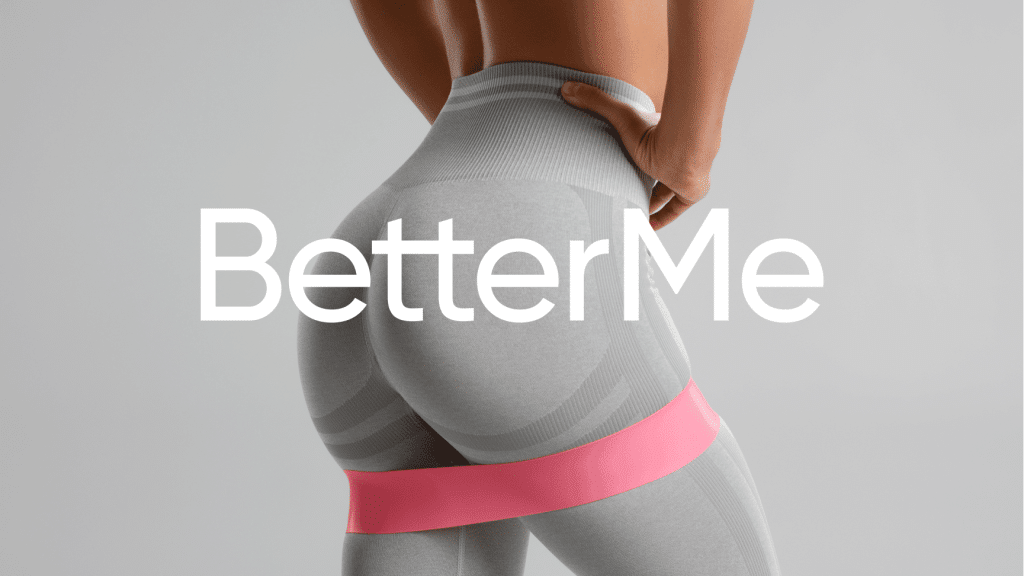There are mainly two types of people in the gym: those who want to get big and strong, and those who want to tone their bodies without adding bulk. The former are mostly interested in lifting heavy weights, while the latter tend to lift lighter weights with higher reps. On the surface, it may seem like these two groups are training for completely different goals. But in reality, both muscle strength and muscle endurance are important for overall fitness and health.
Here’s a closer look at the difference between muscle strength and endurance, and how to train for each:
What Is The Difference Between Strength And Endurance?
Knowing the difference between muscle strength and endurance is crucial for designing an effective workout routine. Let’s look at the definition of each:
What Is Muscle Strength?
Muscle strength is the amount of force your muscles can produce. It’s generally measured by the amount of weight you can lift in a single repetition (1RM).
For example, if you can bench press 200 pounds for one rep, then your bench press 1RM is 200 pounds.
Most people think of muscle strength as being mainly about lifting heavy weights. And while lifting heavy weights is certainly one way to increase muscle strength, it’s not the only measure. Outside the gym, muscle strength is also important for everyday activities like carrying groceries or lifting a child (8).
In other words, muscle strength is not just about how much you can lift in the gym; it’s also about being able to perform functional tasks in your everyday life.
What Is Muscle Endurance?
Muscle endurance is the ability of your muscles to sustain repeated contractions or to resist fatigue. It’s generally measured by the number of repetitions you can do with a given weight before your muscles fail.For example, if you can bench press 200 pounds for 10 reps, then your bench press endurance is 10 reps.
Muscle endurance is important for both athletes and non-athletes alike. For athletes, muscle endurance is important for activities like running, cycling, and swimming. For non-athletes, muscle endurance is important for activities such as gardening, housework, and even walking up stairs.
Read More: Foundational Exercises For Strength And Stability
Can You Have Muscular Endurance And Not Have Muscular Strength?
Yes, it’s possible to have muscular endurance without muscular strength. For example, you might be able to do 100 push-ups but only be able to bench press your body weight for 10 reps. In this case, your muscular endurance is better than your muscular strength.
Conversely, it’s also possible to have muscular strength without muscular endurance. For example, you might be able to bench press 200 pounds for one rep but only be able to do 10 push-ups before your muscles fail. In this case, your muscular strength is better than your muscular endurance.
Which Is Better, Muscle Strength Or Endurance?
Neither muscle strength nor muscle endurance is better than the other. Instead, they’re both important for a well-balanced fitness program.
That said, the type of training you do will likely depend on your specific goals. If you’re mainly interested in increasing muscle mass, then lifting heavy weights is going to be your best bet (6). On the other hand, if you’re more interested in toning your body or improving your cardiovascular fitness, then lighter weights and higher reps is the way to go.
Of course, there’s nothing wrong with training for both muscle strength and endurance. In fact, many experts recommend it. By including both heavy and light weights in your workout routine, you’ll not only improve your overall fitness level, but you’ll also improve multiple aspects of your health.
Why Endurance Is Better Than Strength
In some cases, you might want to focus on muscular endurance rather than strength. For example, if you’re training for a marathon, you’ll need to be able to sustain your muscles for long periods of time. In this case, lifting heavy weights might actually impair your performance.
Similarly, if you’re trying to lose weight, you might want to focus on endurance rather than strength. That’s because muscle endurance training burns more calories than strength training, which can help you lose weight in a healthy way.
The American Council on Exercise lists more benefits of endurance training (5):
- Maintaining good posture for a longer period of time e.g sitting in an office chair
- Everyday functional movements such as going up the stairs
- Doing athletic activities that require a lot of stamina such as running, swimming, playing tennis
- Helps to delays the onset of muscle fatigue
- Promotes better blood circulation
- Helps to maintain a healthy heart
- Can help to lower blood pressure
- Can help to improve cholesterol levels
- Can reduce the risk of heart disease, stroke, and type 2 diabetes
Simply put, building muscle endurance is a good goal if you perform activities that require sustained muscle contractions or if you’re trying to lose weight. That’s not to say that strength isn’t important; it is. But, in some cases, endurance might be a better goal.
If you’ve mustered up the courage to crush your weight loss goal, let Betterme take the sting out of this demanding process. Our app will help you restructure your habits, remold your life and crank up your fitness results!
Why Is Strength Better Than Endurance?
In other cases, you might want to focus on muscular strength rather than endurance. For example, if you’re trying to build muscle mass, you’ll need to be able to lift heavy weights in order to stimulate muscle growth.
Similarly, if you’re trying to improve your athletic performance, you might want to focus on strength rather than endurance. That’s because explosive activities like sprinting and jumping require high levels of muscle power, which can be improved through strength training.
Simply put, building muscle strength is a good goal if you perform activities that require short bursts of power or if you’re trying to build muscle mass. That’s not to say that endurance isn’t important; it is. But, in some cases strength might be a better goal.
How To Train For Muscle Strength
If your goal is to increase muscle strength, this is the science-backed approach you should take:
- If you have previous training experience, use a weight that’s 80-85% of your one-rep max (also called 1RM load; the heaviest weight you can lift for one rep).
- If you don’t have previous training experience, use a weight that’s greater than or equal to 60% of your 1RM load.
- Complete 1-8 repetition until muscle failure (the point where you can’t lift the weight for one more rep).
- Use a 2:1 ratio of work to rest (meaning, if your set takes you 30 seconds to complete, rest for 1 minute before starting your next set).
- Repeat for 3-6 sets per exercise.
- Do this workout 2-3 times per week, making sure to allow 48 hours of rest between workouts that target the same muscle group.
The rules above should be taken as a general guide. Depending on your specific goals and training experience, you might need to adjust the volume (sets x reps), intensity (weight lifted), or frequency (workouts per week) of your workouts. Also consider your history of injuries, how much time you have to train, and other factors when designing your workout program.
How To Train For Muscle Endurance
If your goal is to increase muscle endurance, this is the science-backed approach you should take:
- Use a weight that’s 40-60% of your 1RM load. This increases your muscles’ physiologic efficiency, meaning they can better tolerate the demands of endurance training.
- Complete 15 or more repetitions until muscle failure.
- Use a 1:1 ratio of work to rest (meaning, if your set takes you 30 seconds to complete, rest for 30 seconds before starting your next set).
- Repeat for 2-3 sets per exercise.
- Do this workout 2-3 times per week, making sure to allow 48 hours of rest between workouts that target the same muscle group.
The rules above should be taken as a general guide. Depending on your specific goals and training experience, you might need to adjust the volume (sets x reps), intensity (weight lifted), or frequency (workouts per week) of your workouts. Also consider your history of injuries, how much time you have to train, and other factors when designing your workout program.
Read More: The Best Standing Core Exercises For Strength, Stability, And Function
Other Factors To Consider
When designing your workout program, there are other factors you’ll need to consider in addition to volume, intensity, and frequency. These include:
Building Strength Isn’t The Same As Building Big Muscle
A common misconception is that strength training is the same as bodybuilding. This simply isn’t true.
Bodybuilding is a type of strength training that’s designed to increase muscle size (hypertrophy) (6). Strength training, on the other hand, can be used to increase muscle size, but it can also be used to improve muscle power, force production, and other aspects of performance.
In other words, you can strength train for the sole purpose of increasing muscle size, but you can also strength train for the sole purpose of increasing muscle strength. The two aren’t necessarily the same thing.
Training Programs Should Be Periodized
Periodization is the process of breaking down your training into distinct phases, each with a specific goal. For example, the first phase of your training might be focused on building muscle, while the second phase might be focused on improving strength.
Periodization is important because it allows you to focus on specific goals and avoid overtraining. It also allows you to make progression in your training, which is essential for long-term success.
There are many different types of periodization, but the most common is linear periodization. This is where you gradually increase the volume and intensity of your workouts over time.
Consistency Is Key
No matter what type of training program you follow, consistency is key. You need to be consistent with your workouts if you want to see results.
This means showing up to your workouts on a regular basis and not skipping days. It also means following your program as closely as possible and not making random changes.
Compound Exercises Offer More Bang For Your Buck
When following a muscle strength routine, you should focus on compound exercises (7).These are exercises that involve multiple joints and muscle groups.
Examples of compound exercises include the squat, deadlift, bench press, and overhead press. These exercises are superior to isolation exercises (like the bicep curl) for building muscle and strength.
This is because compound exercises allow you to lift heavier weights and recruit more muscle fibers. This results in greater muscle growth and strength gains.
Form Matters
When lifting weights to muscular failure, it’s important to maintain good form. This means using a full range of motion and avoiding excessive momentum.
Good form not only helps you get the most out of your workouts, but it also reduces your risk of injuries.
If you can no longer maintain good form, that’s a sign that you’ve reached muscular failure. At this point, you should end your set.
Reasons why BetterMe is a safe bet: a wide range of calorie-blasting workouts, finger-licking recipes, 24/7 support, challenges that’ll keep you on your best game, and that just scratches the surface! Start using our app and watch the magic happen.
Diet Matters
In addition to training, your diet also plays a role in muscle growth and strength gains. To see the best results, you should eat a diet that’s high in protein and calories (2). Protein is the nutrient that’s responsible for muscle growth. So, if you’re not eating enough protein, you’re not giving your body the raw materials it needs to build muscle.
For endurance, you should consume enough calories to fuel your workouts. But you don’t need to go overboard. Eating too many calories can lead to weight gain, which can be detrimental to your endurance goals.
A healthy, clean diet is always best. Focus on consuming whole, unprocessed foods and avoid processed foods, sugary drinks, and excessive amounts of alcohol.
Supplementation
Supplements can be helpful for people who are training hard and not seeing results. But they should never be used as a replacement for a healthy diet and training program.
Some of the most effective supplements for muscle growth and strength gains are:
- Creatine: Works by increasing ATP production, which leads to greater muscle growth and strength (1).
- Protein powder: Helps you meet your protein needs, which is essential for muscle growth (4).
- Beta-alanine: Helps improve muscular endurance, which allows you to train harder and longer (3).
The Bottom Line
So, what’s the bottom line? Both muscle strength and endurance are important for a well-rounded fitness program. By including both heavy and light weights in your workout routine, you’ll be on your way to achieving all of your fitness goals.
Get your personalized
meal plan!
DISCLAIMER:
This article is intended for general informational purposes only and does not serve to address individual circumstances. It is not a substitute for professional advice or help and should not be relied on for making any kind of decision-making. Any action taken as a direct or indirect result of the information in this article is entirely at your own risk and is your sole responsibility.
BetterMe, its content staff, and its medical advisors accept no responsibility for inaccuracies, errors, misstatements, inconsistencies, or omissions and specifically disclaim any liability, loss or risk, personal, professional or otherwise, which may be incurred as a consequence, directly or indirectly, of the use and/or application of any content.
You should always seek the advice of your physician or other qualified health provider with any questions you may have regarding a medical condition or your specific situation. Never disregard professional medical advice or delay seeking it because of BetterMe content. If you suspect or think you may have a medical emergency, call your doctor.
SOURCES:
- Creatine supplementation (2013, nih.gov)
- Dietary Protein and Muscle Mass: Translating Science to Application and Health Benefit (2019, nih.gov)
- Effects of β-alanine supplementation on exercise performance: a meta-analysis (2012, nih.gov)
- Effects of Protein Supplementation on Performance and Recovery in Resistance and Endurance Training (2018, nih.gov)
- Health Benefits of Endurance Training: Implications of the Brain-Derived Neurotrophic Factor—A Systematic Review (2019, nih.gov)
- Maximizing Muscle Hypertrophy: A Systematic Review of Advanced Resistance Training Techniques and Methods (2019, nih.gov)
- Single vs. Multi-Joint Resistance Exercises: Effects on Muscle Strength and Hypertrophy (2015, nih.gov)
- The Importance of Muscular Strength: Training Considerations (2018, nih.gov)











